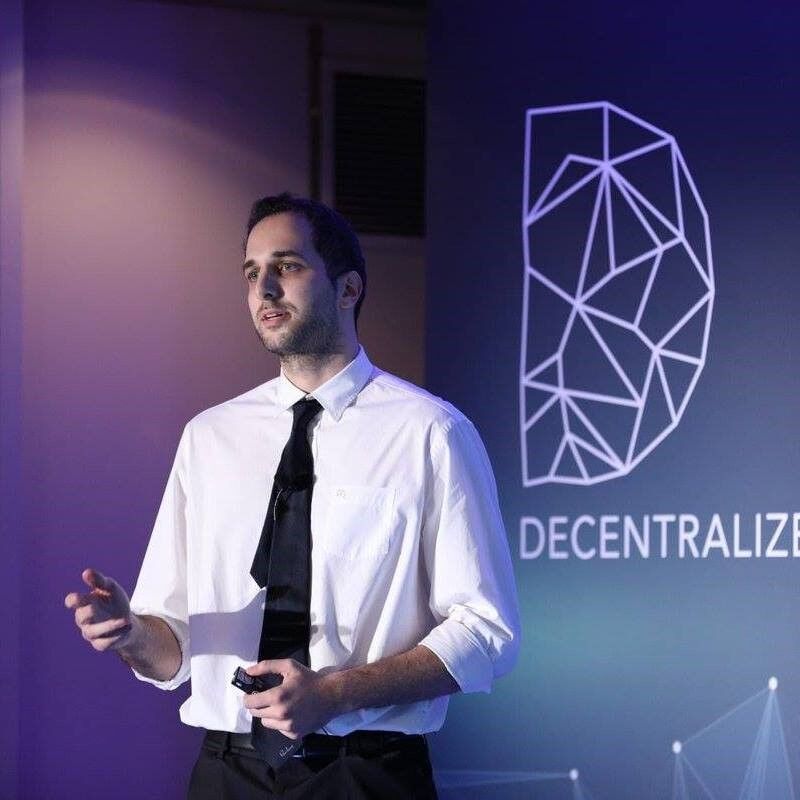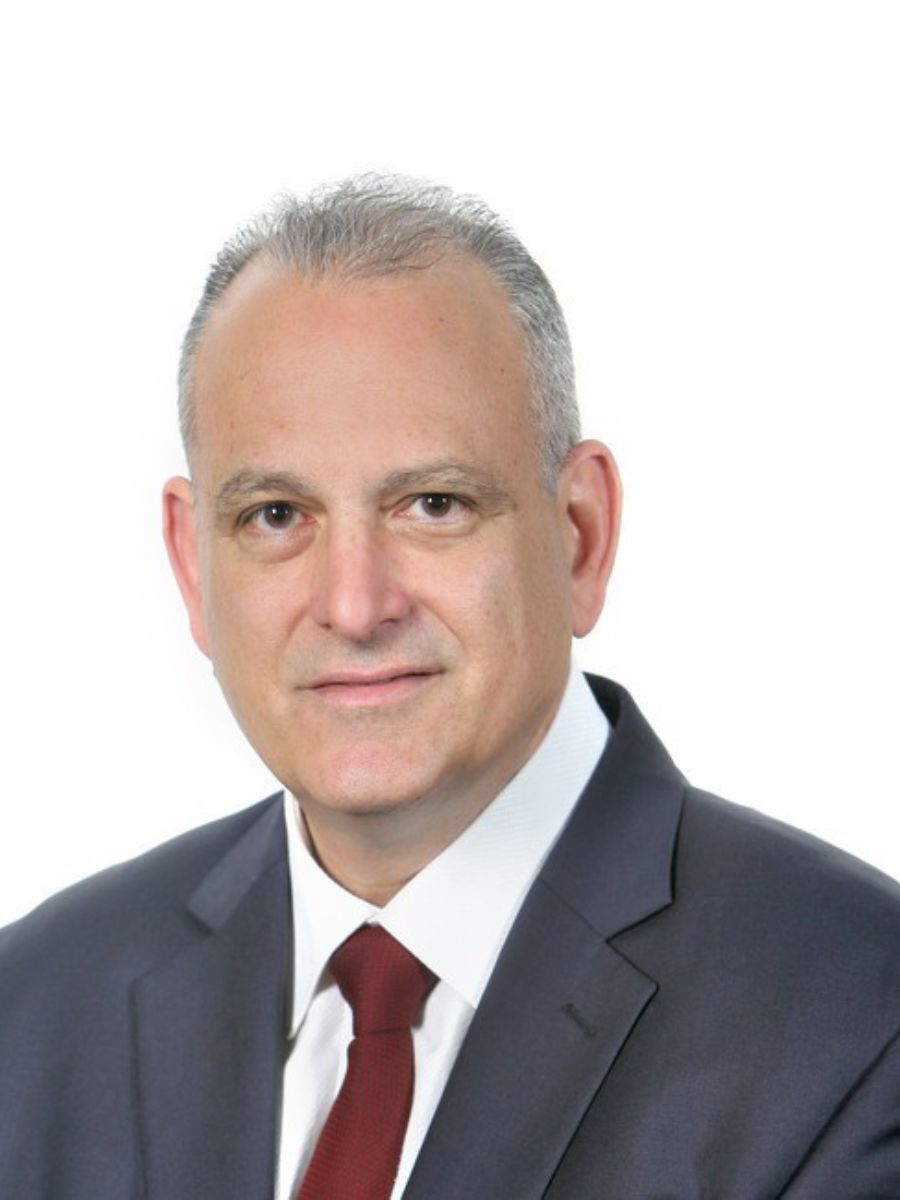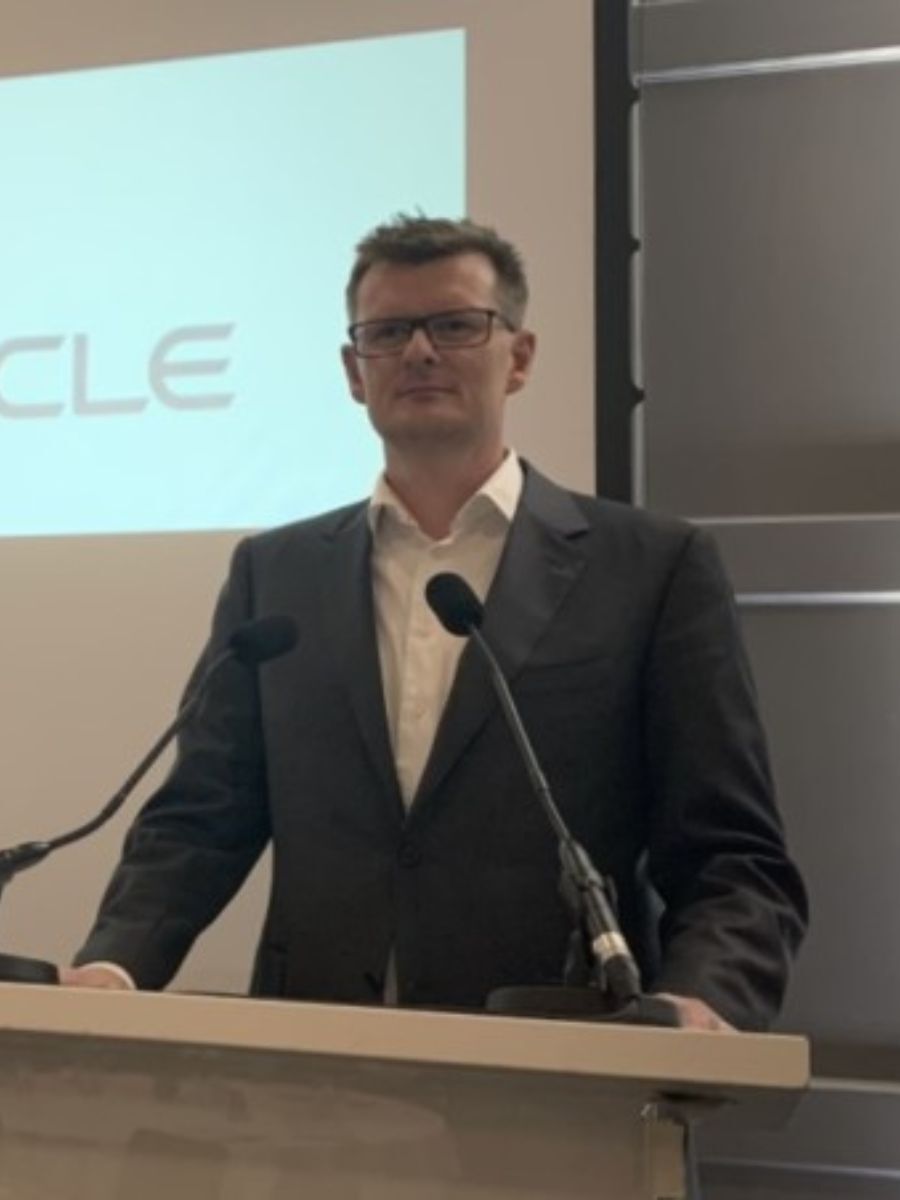Leading blockchain education since 2013
UNIC has long considered blockchain technology to be a fundamental technological breakthrough with significant financial and societal implications and selected it as one of its three interdisciplinary priorities across all schools and departments of the university.
Top reasons to study at UNIC
Academic
Quality
Taught by leading faculty and industry practitioners from around the world
Student
Community
Largest blockchain and metaverse student community in the world
Professional
Development
Networking opportunities in the Blockchain and Metaverse industries
SCHOLARSHIPS
€300,000 in merit-based and need-based scholarships
Master’s Degrees
MSc in
BLOCKCHAIN AND DIGITAL CURRENCY
We are at the beginning of a global wave of demand for blockchain academic and professional education and certification. The University of Nicosia was the first to recognize this need and responded by offering the first Master of Science degree in Blockchain and Digital Currency, available to students worldwide through an online format since 2014 and on campus since 2021. The programme is hosted by the Department of Digital Innovation.
MSc in
COMPUTER SCIENCE –BLOCKCHAIN CONCENTRATION
The Master degree in Computer Science advances the students’ knowledge in core areas of computer science beyond the undergraduate level and exposes them to current and emerging trends.
The program aims of the specialization in Blockchain Technologies focus on the fundamentals of digital currencies and the underlying blockchain technology. It also focuses on programmable smart contracts and the associated architectures such as Ethereum. It aims to prepare students on the possible impact of these technologies on various applications including those based on Artificial Intelligence, Machine Learning and Internet of Things.
MSc in
METAVERSE
The MSc in Metaverse is an interdisciplinary programme focused on preparing creators, developers, architects, social scientists, financial professionals, policy makers, and others for careers in metaverse design and management. The master’s program is designed to help students explore the relationship between Metaverse technologies and its applications (e.g. technical, business) to attain a new insight on how to design, develop, and gain value from the implementation of new Metaverse products and services.
UNIC IS THE 1st UNIVERSITY IN THE WORLD
TO ACCEPT BITCOIN FOR TUITION PAYMENTS
to offer crypto and web3 education
to publish academic diplomas on the blockchain
to publish blockchain-
verifiable academic certificates as NFTs
FREE MOOCS
massive open online courses
NFTs AND THE METAVERSE
An open introductory course to NFTs and the Metaverse, delivered on-chain and in the metaverse.
The University of Nicosia (UNIC) has been a leader in cryptocurrency education and research since 2014, when it taught the world’s first for-credit cryptocurrency course.
This course is taught by UNIC faculty and @punk6529 – a deeply influential thinker on NFTs and the metaverse and one of the largest NFT collectors in the world – along with an incredible array of guest panelists and lecturers.
DIGITAL CURRENCY
The ‘Free MOOC: Digital Currency’ is the first free MOOC (Massive Open Online Course) on Cryptocurrencies and Blockchain technology globally, and the first course of the MSc in Blockchain and Digital Currency degree programme.
The ‘Free MOOC: Digital Currency’ is transformed into a dynamic 12-week course, offering two certificates and allowing students to tailor their educational experience. The new version of the course includes a brand-new curriculum and hands-on elements such as practical exercises, labs, and research seminars.
A UNIC STORY:
Bryant Joseph Gilot
In 2009, Bryant worked as a doctor in Philadelphia. While practicing, he developed a passion for the innovative field of blockchain technology. In 2014, he enrolled in an online MSc in Digital Currency at the University of Nicosia. He was one of the first graduates in the world with a degree in blockchain technology. Bryant combined his medical career with his passion to chase a new dream. Today, he is Chief Medical Officer at Blockchain Health Co. in San Francisco. He spends his time between San Francisco and Tübingen, enhancing medical research.
ACADEMIC Certificates
Blockchain Financial Analyst Certification
BLOC-516 Principles of Money, Banking and Finance
BLOC-526 Emerging Topics in Fintech
BLOC-527 Open and Decentralized Financial Systems
BLOC-528 Token Economics
*Students to choose three courses out of four
**Students are recommended to take BLOC-511DL: Digital Currency which provides introductory understanding of crypto assets and blockchain technology.
Blockchain Business Analyst Certification
BLOC-512 Blockchain Systems and Architectures
BLOC-514 Emerging Topics in Blockchain and Digital Currency
BLOC-515 Blockchain and Entrepreneurship Management
*Students to attend all courses
**Students are recommended to take BLOC-511DL: Digital Currency which provides introductory understanding of crypto assets and blockchain technology.
Blockchain Developer Certification
BLOC-521 Digital Currency Programming
BLOC-522 Smart contract programming
BLOC-523 Permissioned Blockchain Programming
BLOC-524 Cryptographic Systems Security
*Students to choose three courses out of four
**Students are recommended to take BLOC-511DL: Digital Currency which provides introductory understanding of crypto assets and blockchain technology.
Blockchain Regulator Certification
BLOC-528 Token Economics
BLOC-513 Law and Regulation in Blockchain
BLOC-525 Emerging Topics in Law and Regulation
*Students to attend all courses
**Students are recommended to take BLOC-511DL: Digital Currency which provides introductory understanding of crypto assets and blockchain technology.
Professional Training
FINANCIAL INVESTIGATION ON DIGITAL ASSETS
Our comprehensive training program is designed to adapt to the unique needs of our participants. While we maintain flexibility in duration and mode of delivery, our core objective remains to equip law enforcement agents, prosecutors, and financial crime investigators with the latest tools and knowledge to combat digital asset crimes effectively. Tailor-made courses ensure relevance and direct applicability to the varying challenges faced by professionals in the field.
Blockchain Technical Academy and Incubator Program
Blockchain Tech Academy embraces a “Web3 agnostic” approach, ensuring our training spans a broad range of platforms and ecosystems, highlighting our belief in limitless education.
We strive to be the go-to knowledge hub for developers, offering specialized courses designed to advance their practical skills and certify them as leaders in the web3 domain.
Blockchain Hackathons
Dive into the dynamic world of Blockchain Hackathons at the University of Nicosia (UNIC), where innovation meets collaboration. Our hackathons, held in partnership with leading organizations in the blockchain space, are designed to challenge, inspire, and empower participants to shape the future of technology.















